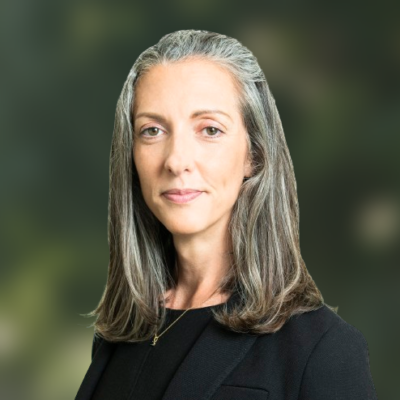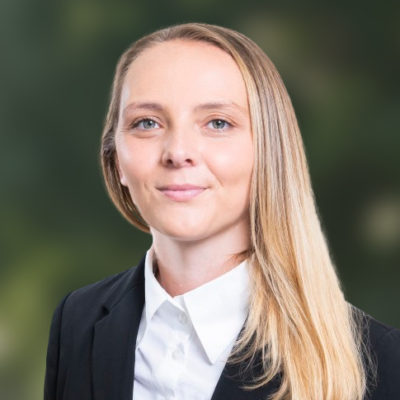21/12/2020
How Bell v Tavistock and Portman NHS Foundation Trust [2020] EWHC 3274 (Admin) is likely to lead to a rise in legal claims – written by Sophie Beesley and Emily Slocombe
“Life is a matter of choices, and every choice you make makes you” – John C. Maxwell
In law, capacity to make a decision is the ability to use and understand information to make that decision, and communicate any decision made. A person lacks capacity if their mind is impaired or disturbed in some way, which means they are unable to make a decision at that point in time.
Like adults, young people (aged 16 or 17) are presumed to have sufficient capacity to decide their own medical treatment, unless there’s significant evidence to suggest otherwise. Children, under the age of 16 years, can consent to their own treatment, if they are believed to have enough intelligence, competence and understanding to fully appreciate what is involved. This is known as being Gillick competent.
The principal issue considered by the court in Bell v Tavistock and Portman NHS Foundation Trust [2020] EWHC 3274 (Admin) was whether a child under 16 can achieve Gillick competence in respect of a decision to take puberty supressing drugs (PBs) for gender dysphoria.
The case was brought by Keira Bell, a 23 year old woman who transitioned to male and regretted starting PBs at the age of 15, and the unnamed mother of a 15 year old autistic girl who is on the waiting list for treatment. The claim was for judicial review of the Defendant’s practice of prescribing PBs to persons under the age of 18 who experience gender dysphoria.
Gender dysphoria is a condition where people experience distress because of a mismatch between their perceived identity and their sex at birth, and have a strong desire to live according to their perceived identity.
The Defendant, through its Gender Identity Development Service (GIDS), offers a three stage treatment pathway of physical intervention. Stage 1 is the administration of PBs, which can be prescribed to children as young as 10. Stage 2 is the administration of cross-sex hormones (CSH), which can only be prescribed from around age 16. Stage 3 is gender reassignment surgery, which is only available to those over 18.
The court held that for a child to achieve Gillick competence in this context, the child would need to understand not only the implication of PBs, but those of progressing to CSH because the evidence showed that only about 1.9% of children stopped the treatment after stage 1 and did not proceed to CSH. The relevant information that a child would have to understand, retain and weigh up included that CSH could lead to a loss of fertility, the impact of CSH on sexual function, the impact on future and lifelong relationships etc.
The court held that it would be difficult for a child under 16 to understand and weigh up such information: although they might understand the concepts, for example, of a loss of fertility or sexual function, that was not the same as understanding how their adult life would be affected.
The difficulty of obtaining informed consent was exacerbated by the lack of evidence as to the efficacy of PBs in treating gender dysphoria and the long term consequences of taking the medications.
Gillick makes it clear that any decision is treatment and person specific, however, the court’s findings led it to conclude (and issue a declaration) that it was highly unlikely that a child aged 13 or under would ever be Gillick competent to give consent to treatment with PBs. It was doubtful that a child aged 14 or 15 could do so either.
In relation to children aged 16 or 17 years, pursuant to section 8 of the Family Law Reform Act 1969, there is a presumption that such children have the capacity to consent to surgical and medical treatment. However, given the long-term consequences of GIDS’ clinical interventions and that the treatment was innovative and experimental, the court stated that clinicians “may well consider” obtaining court authorisation prior to commencing the clinical treatment.
This is one avenue through which this important case is likely to give rise to an increased number of legal claims, involving children seeking PBs. Following the ruling, the Defendant suspended referrals for hormone therapy. NHS England has also issued revised rules for the treatment of children and adolescents by GIDS, stipulating that before doctors can prescribe PBs, they need to apply to a court for an order that the treatment is in the child’s best interests.
Doctors will also need to review the cases of patients already receiving PBs and potentially apply for court orders to confirm that treatment is in individuals’ best interests. NHS England has appointed Dr Hilary Cass to lead a review into GIDS.
To put the issue in context, about 3,000 children are currently being seen by GIDS, of whom several hundred are receiving PBs, and there is a waiting list of almost 5,000.
Another route for a potential increase in legal claims is through clinical negligence claims, brought by people who regret starting the treatment and allege their informed consent to treatment was not obtained, because they were not Gillick competent to make a consent decision or because the consent process itself was not Montgomery compliant.
In all scenarios, records of the consent process, accounts of pre-treatment consultations and any applicable informed consent guidance are likely to be key in assessing the appropriateness of decisions. Evidence of genuine “space to think” being given between stages within the treatment pathway will also be important, as will evidence of alternative treatments being offered (e.g. psychological treatment and support), to ensure the treatment pathway offers true choice rather than generating persistence.
Improving the availability of data to assess the impact and efficacy of the treatment will also be important. The court expressed its surprise that better data was not already available three times within its judgment. The court heard that the Defendant had also not collated data on many other important statistics, such as, the age distribution of those prescribed PBs, the proportion of children referred to the service with an existing autism diagnosis, the number of children (if any) assessed suitable for PBs but not assessed as Gillick competent.
Many of the court’s findings arguably resonate with the views expressed in “First Do No Harm”, the recently published report of the Independent Medicines and Medical Devices Safety Review, which stated:
“Innovation in medical care has done wonderful things and saved many lives. But innovation without comprehensive pre-market testing and post-marketing surveillance and long-term monitoring of outcomes is, quite simply, dangerous. Crucial opportunities are lost to learn about what works well, what does not, what needs special measures put around its use, and what should be withdrawn because the risks over time outweigh the benefits. Without such information it is not possible for doctors and patients to understand the risks, and patients cannot make informed choices.”
In relation to the longevity of this decision, the High Court refused the Defendant permission to appeal its decision, however, it is understood that the Defendant will seek leave to appeal directly from the Court of Appeal.
Sophie Beesley & Emily Slocombe
Sophie and Emily are barristers practising at Old Square Chambers within its clinical negligence team. Old Square’s team comprises a group of highly regarded specialists whose collective experience enables the team to provide advice and advocacy across the full range of clinical negligence and related disputes. The team, and many of its individual members, are recognised for their expertise in The Legal 500 and Chambers & Partners.











